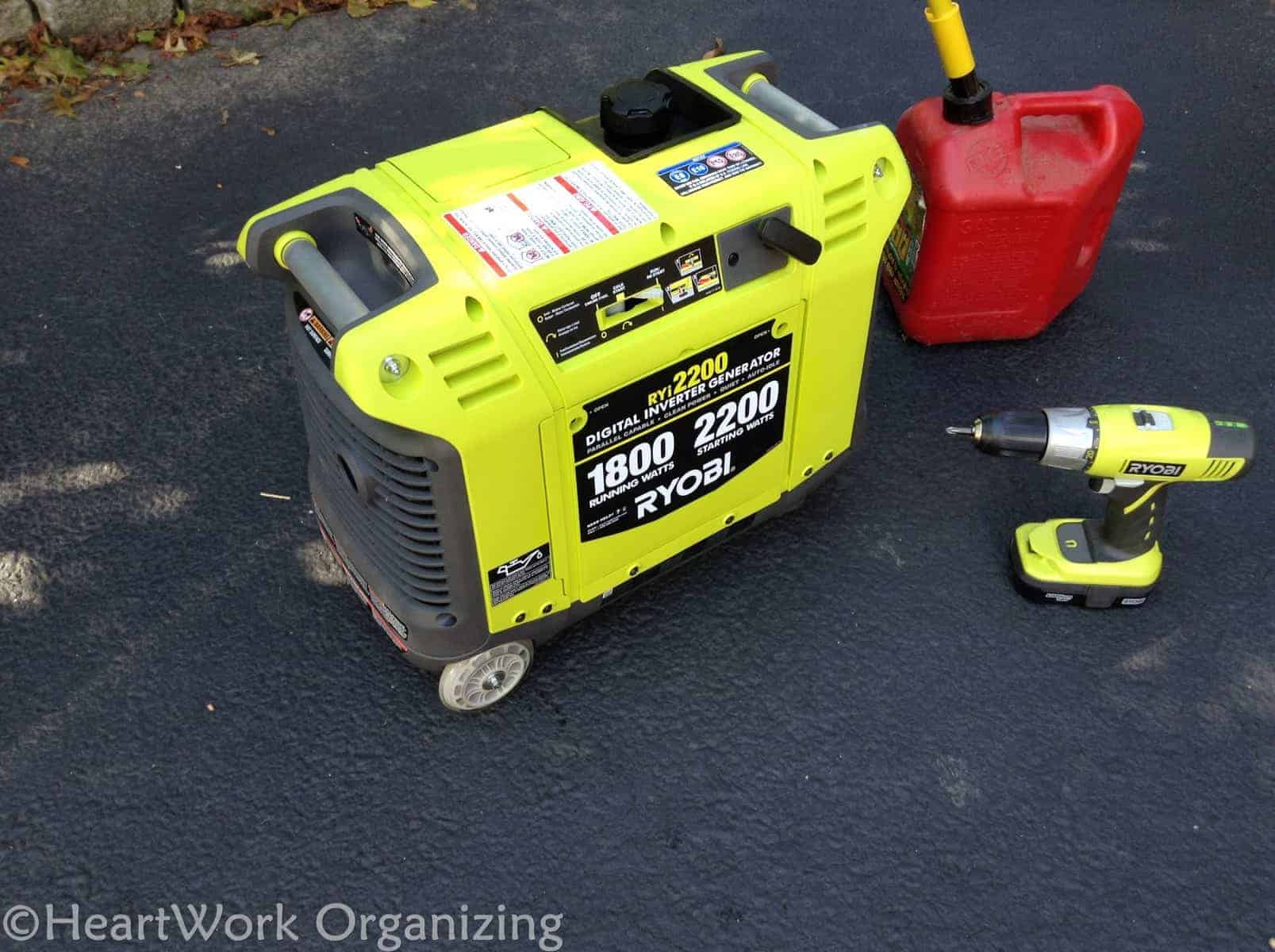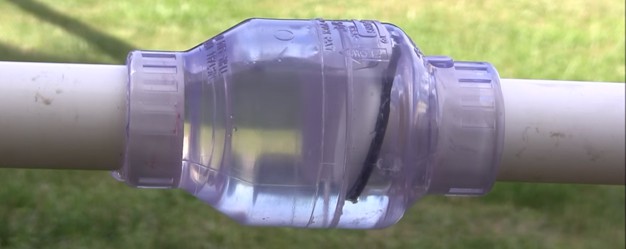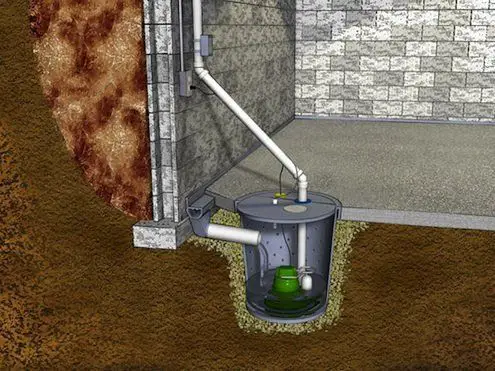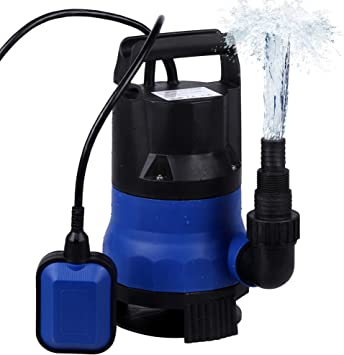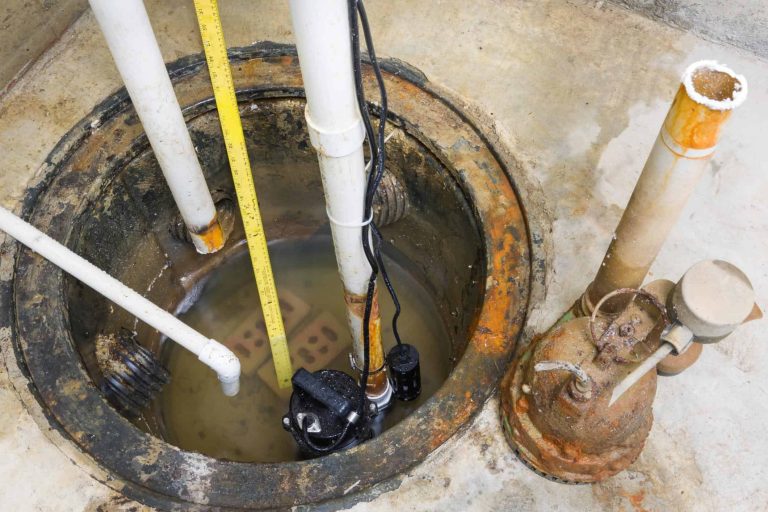Can Generator Be Used to Power Sump Pump
If you have a sump pump in your basement, you know that it’s important to have a reliable power source for it. But what if there’s a power outage? Can you use a generator to power your sump pump? The answer is yes, but there are some things you need to know first.
For one, you’ll need to make sure that the generator is properly sized for the sump pump. The last thing you want is for the generator to overload and cause damage to the pump.
If your home is prone to flooding, you may be wondering if a generator can be used to power a sump pump. The answer is yes! A generator can absolutely be used to power a sump pump in the event of a power outage.
Of course, you’ll want to make sure that your generator is properly sized for your sump pump. You’ll also want to have a few things on hand, like extension cords and an adapter if needed.
And finally, it’s always a good idea to have a backup plan in place in case of any unforeseen issues. But rest assured, if you need to rely on a generator to keep your sump pump running during a power outage, it can definitely be done!
AC WORKS® Wisdom: Powering Your Sump Pump with a Generator
Will a 1000 Watt Generator Run a Sump Pump
A sump pump is one of the most important pieces of equipment in a home that is prone to flooding. Without a sump pump, water can quickly build up in the lowest part of your home, causing serious damage.
So, if you have a 1000 watt generator, can it run a sump pump? The answer is yes, but there are some things you need to know first. A 1000 watt generator can provide enough power to run most standard sump pumps.
However, it’s important to check the specific requirements of your sump pump before making any decisions. Some high-powered sump pumps may require more than 1000 watts of power to operate properly.
In addition, you’ll need to factor in other devices that may be running on your generator at the same time as your sump pump. If you’re only powering your sump pump, then you should have no problem using a 1000 watt generator.
But if you’re also running other devices, like lights or appliances, then you’ll need to make sure your generator has enough power to accommodate all of those devices. Overall, a 1000 watt generator can certainly run a standard sump pump without any problems. Just be sure to do your research beforehand and factor in all other devices that will be running on your generator at the same time.
What Size Generator to Run Sump Pump And Refrigerator
If you’re wondering what size generator to run a sump pump and refrigerator, the answer may depend on the specific model of each appliance. For example, a standard 20-cubic-foot fridge will require about 700 watts, while a chest freezer may need 1,200 watts.
As for sump pumps, the average unit will use about 250 watts. Now, these are just estimates – your appliances may use more or less power depending on their age, efficiency, and other factors.
That’s why it’s always best to consult your owner’s manual before making any decisions. In general, though, you’ll want to look for a generator that can provide at least 1,000 watts of power.
This will ensure that you can run both your sump pump and fridge at the same time without any issues. And if you have other appliances that you need to power (like lights or a TV), you can always get a generator with more wattage.
Generator for Sump Pump
A generator for a sump pump is a device that helps to create the power needed to run the sump pump. There are many different types and sizes of generators available on the market, so it is important to choose one that is best suited for your needs.
The most common type of generator used for this purpose is a gas-powered generator. These units are typically small and portable, making them easy to store and use in an emergency.
Battery Powered Generator for Sump Pump
If you live in an area that is prone to flooding or power outages, a battery powered generator for your sump pump can be a lifesaver. A battery backup system will keep your sump pump running even if the power goes out, ensuring that your basement stays dry.
There are a few things to consider when choosing a battery backup system for your sump pump. The first is the capacity of the battery.
You’ll want to choose a battery that can run your sump pump for several hours in case of a prolonged power outage. The second thing to consider is the type of batteries you’ll use.
Lead acid batteries are the most common type used in battery backup systems, but they require maintenance and can be expensive. Lithium ion batteries are becoming more popular as they don’t require maintenance and are more affordable.
Once you’ve chosen the right battery for your needs, you’ll need to install it properly. Most systems come with easy-to-follow instructions, but it’s always best to consult with an electrician to make sure everything is installed correctly. With a little preparation, you can rest assured knowing that your basement will stay dry even during the worst weather conditions!
Can a Solar Generator Power a Sump Pump
A solar generator can power a sump pump, but it may not be the most efficient option. A sump pump typically draws around 1-2 amps, which means that a small solar panel could do the job. However, solar generators are usually more expensive than gas or electric models, so you’ll have to decide if the extra cost is worth it for you.
Best Generator for Sump Pump
A sump pump is an important piece of equipment that helps to keep your basement dry. A sump pump works by pumping water out of your basement and away from your home.
If you have a wet basement, a sump pump can help to prevent mold and mildew from growing. There are different types of sump pumps available on the market, but not all of them are created equal.
When choosing a sump pump, it’s important to choose one that is powerful enough to do the job. The best generator for a sump pump is one that has at least 1,000 watts of power.
This will ensure that your sump pump can handle any amount of water that it needs to pumped out of your basement. In addition to choosing a powerful sump pump, you also need to make sure that the unit is durable and can withstand extended use.
A good way to determine this is by reading online reviews from other homeowners who have purchased and used the same model of sump pump as you’re considering. By reading real-world reviews, you can get a better idea as to which models are known for being reliable and which ones tend to break down soon after purchase.
Once you’ve found a few different models that meet your criteria, it’s time to compare prices. Sump pumps vary widely in price, so it’s important to find one that fits within your budget. However, don’t let price be the only factor you consider when making your decision – be sure to also look at features and reviews before making your final choice.
Indoor Generator for Sump Pump
If your basement is prone to flooding, you may want to consider investing in an indoor generator for your sump pump. This way, if the power goes out and your pump isn’t able to operate, the generator will kick on and help to prevent any water damage.
Here are a few things to keep in mind when shopping for an indoor generator for your sump pump: 1. Make sure that the model you choose is compatible with your specific make and model of sump pump.
Not all generators are created equal and some may not work with certain pumps. 2.
Pay attention to the wattage output of the generator. You’ll want to make sure that it can handle the power needs of your sump pump.
If in doubt, err on the side of caution and choose a model with a higher wattage output. 3.
Consider how easy the generator will be to use in an emergency situation. Some models come with automatic start-up features that can be helpful if you’re not home when the power goes out. Others require manual operation, which isn’t necessarily a bad thing – just something to keep in mind depending on your needs.
How Many Watts Does a Sump Pump Use
A sump pump is a small, submersible pump that is used to remove water from a sump pit. The pit is usually located in the basement of a home and collects water that has seeped through the foundation or walls.
Sump pumps are often used in homes that are located in areas with high groundwater levels or where flooding is common. The average sump pump uses between 500 and 1,500 watts of power.
The specific wattage will depend on the size and capacity of the pump. A larger pump that can move more water will use more power than a smaller pump.

Credit: heartworkorg.com
How Big of a Generator Do I Need to Power a Sump Pump?
If you have a sump pump in your basement that is used to remove water that has accumulated in the sump pit, you may be wondering how big of a generator you need to power the pump. The size of the generator you need will depend on the horsepower of the sump pump and the voltage it uses.
The average sump pump is 1/3 horsepower and uses 110 volts. A generator that can provide 700 watts of continuous power would be sufficient to run such a pump.
However, if your sump pump is higher horsepower or uses 220 volts, you will need a more powerful generator. To determine the size generator you need to power your specific sump pump, use this formula: (horsepower x 746) / volts = watts needed.
For example, if your sump pump is 1/2 horsepower and uses 110 volts, you would need a 882 watt generator ((0.5 x 746) / 110). In short, the size of generator you need to power a sump pump depends on the specifics of the pump – namely, its horsepower and voltage rating. To determine exactly how many watts your particular pump requires, use the formula [(horsepower x 746) / volts].
Will a 3500 Watt Generator Run a Sump Pump?
A 3500 watt generator can run a sump pump, but only for a limited time. The average sump pump uses about 1,000 watts of power, so a 3500 watt generator can theoretically run a sump pump for 3.5 hours.
However, generators have a surge wattage that is usually about double the continuous wattage. This means that while a 3500 watt generator could technically run a sump pump for 3.5 hours, it would only be able to do so if the sump pump was the only thing running on the generator. If other devices were plugged into the generator, the runtime would be reduced accordingly.
Do You Need a Generator If You Have a Sump Pump?
If you live in an area that is prone to power outages, then a generator is a good idea. A sump pump will not work without electricity. If your power goes out and you have a sump pump, you will need a generator to run it.
How Can I Power My Sump Pump Without Electricity?
If your home is prone to flooding or you live in an area with a high water table, a sump pump is a valuable addition to your home. While most sump pumps are powered by electricity, there are ways to power your sump pump without electricity.
In this blog post, we’ll explore how to power your sump pump without electricity so that you can keep your basement dry even when the power goes out. There are a few different ways that you can power your sump pump without electricity.
One option is to use a generator to power the pump. If you have a generator on hand, simply connect it to the pump and turn it on.
The pump will then work just as it would if it were plugged into an electrical outlet. Another option is to use a battery-powered backup system.
These systems typically include a small battery that powers the pump in the event of a power outage. Finally, some newer models of sump pumps are equipped with solar panels that allow them to run off of sunlight.
If you’re interested in exploring solar-powered options, be sure to consult with a qualified installer before making any purchase decisions. No matter which method you choose, powering your sump pump without electricity is possible and can help keep your basement dry during extended power outages.
Conclusion
A generator can be a great way to power a sump pump in the event of a power outage. However, it is important to ensure that the generator is properly sized for the sump pump and that it is properly ventilated. Additionally, the generator should be regularly maintained to ensure optimal performance.

